Electronic musician Martin Thompson summons his compositions as Bit Cloudy from an East London home studio, building intricate sonic landscapes between dog walks. His latest album, The Visitation Plays, emerges as a focused collection that threads leftfield techno, glitchy IDM, trip-hop, and acid-house influences into something challenging yet inviting. Martin's modus operandi combines soft synthesizer lines intertwining over meticulously programmed percussion, often venturing into odd time signatures and processed disembodied vocal fragments that become haunted instruments.
The album takes its name and spiritual direction from British television dramatist Dennis Potter, whose groundbreaking works from the 1970s blended psychological realism with surreal, often musical elements. Potter's plays frequently featured unexpected visitors who functioned as catalysts for transformation—devils, angels, or long-lost children who disrupted the comfortable patterns of everyday life. This disruptive quality also runs through Thompson’s compositions, where moments of meditative beauty can suddenly shift into tense, glitchy workouts before dissolving into entirely new sonic territories.
Martin occupies an unusual creative space, dividing his musical attention between Bit Cloudy's electronic experimentation and his role as guitarist in the dream-pop band Firestations. This dual musical identity creates a fertile tension in his work. His opening track, "Tension Hex," originally composed for The Engine Room 2023 International Sound Art Exhibition, exemplifies his approach—beginning with warped, unsettling elements before evolving into something unexpectedly beautiful. Other tracks like "Venus Tumble" mirror this transformative quality, building from dreamy, progressive meditations into tense arrangements before revealing surprising coda sections filled with jazzy bells and bossanova rhythms.
I was captivated by this sublime album of homespun electronica from first listen. My curiosity about the ins and outs of The Visitation Plays called for a quick chat with Martin Thompson, AKA Bit Cloudy, which has been lightly edited for clarity, length, and flow.

Michael Donaldson: You mention creating music "in the box" on a cheap PC laptop between dog walks and running a fashion business. How does this integration of music-making into daily life affect your sound? Are there moments where the mundane bleeds into the otherworldly in your compositions?
Martin Thompson: I'd like to think so, yes. Maybe I'm always trying to make tracks that flow organically but also blindside the listener with unexpected twists; it takes some degree of confidence to feel you won’t lose momentum. With me, there's a tension between looking for something very simple and repetitive in electronic music, doing more with less as with a lot of classic stuff like Kraftwerk or Detroit techno, but also keeping things interesting and unpredictable. I do like some things to sound meditative and somewhat domestic. I listen constantly to my works in progress while walking my dog in the nearby greenery, which must inevitably influence how they evolve.
If I don't set any limits, I can end up endlessly layering things up, which I guess is the curse of the solo producer. Mind you, nearly everything I do seems to end up only being about four minutes long, resulting in fairly short tracks compared to what many of my peers seem to be doing. I'm lucky to sort of slip into a creative flow state almost immediately, and that's the same with the band. I never play the guitar at home, only in rehearsals or writing sessions.
Michael: What’s it like switching your creative attention from the role of guitarist in Firestations to the electronic experimenter in Bit Cloudy? Does one project influence the other?
Martin: Yes, being in a band that plays live and records helps me dodge the problem of potential loneliness that can come with producing music alone on a laptop. I have added parts to Firestations recordings in a similar way to my Bit Cloudy output, though I mainly play lead guitar in the band. It's quite strange that I've never played guitar on any of my own projects. I have no idea why that is.
During lockdown, as Firestations, we composed and remotely recorded a 77-minute album entitled Dream Home for WIAIWYA Records, which turned out to be much more a 50/50 collaboration between Mike (main man of Firestations) and myself, working much more as I do as Bit Cloudy. Conversely, for the first time, the upcoming Firestations record Many White Horses on Lost Map, doesn't feature me at all, but in January, we recorded a new full band record which very much does.
I love having Bit Cloudy and Firestations both operating at the same time; it keeps me off the streets.

Michael: Your background in squat raves, filtered through years of playing art rock and dream-pop, suggests an interesting evolution in how you process musical memory. How do these half-remembered experiences manifest in your current work? Are there specific moments on the album where these temporal layers become apparent?
Martin: I sometimes notice that something I'm doing echoes genres that I've been absorbed in during a phase from my past, maybe hip hop (I'm still completely obsessed with early Wu-Tang Clan), or post-rock like Tortoise. I must have absorbed a lot from my rave past, but I never really had any idea who the DJs were or what most of the records were; it was a chaotic time.
I don't deliberately draw on genres, really; they just seem to bubble up in unexpected ways. I sometimes listen to current electronic artists that I've read about or come across from the current Bandcamp scene that I'm tangentially involved with (the world of labels like Castles in Space, Waxing Crescent, Woodford Halse, etc.). Still, I invariably only listen to half a track, then turn it off, and start making something myself obliquely influenced by it. I think my attention span is probably completely shot, for which we can safely blame your friend and mine, the World Wide Web. I listen to politics or comedy podcasts much more than other people's music, which I feel quite bad about.
Michael: The album's title references Dennis Potter's plays where unexpected visitors become agents of transformation. In creating these tracks, did you find yourself playing both host and visitor to your own musical ideas? How does this dynamic of welcoming the unexpected play out in your production process?
Martin: In practical terms, if a piece I'm working on doesn't go somewhere I like pretty quickly, I will often almost blindly go into a random abandoned session and grab parts, often in a completely different key, tempo, and style, and dump them into the one I'm working on to shake things up. I usually find something unexpected that works well and pushes the piece into an unintended zone. I did that with a couple of tracks on The Visitation Plays, which is a neat analog for those plays that hadn't occurred to me. If it creates a jarring or slightly sinister element to the track, then I usually enjoy that and go with it. I think my non-linear, almost unconscious way of working is in keeping with a lot of films, drama, and literature that I respond to, particularly the plays and screenplays of Harold Pinter and those of Potter. David Lynch, too, of course.
Michael: The press release notes that "Tension Hex" originated as a sound art piece for exhibition. How does composing for a gallery space differ from creating for headphone listening? Did this shift in context influence the rest of the album?
Martin: I think it probably did. The way I usually create on my own is not linear or cerebral. I find myself almost instantly in a sort of flow state where I'm not making conscious decisions, even on things as basic as setting a tempo or selecting instruments or samples. I always start with a blank project in Ableton without a template of any kind, and it's usually only if I have a brief that I'll even have a vague idea of what I'm attempting to make.
By trying to create something for a "sound art" context, I've already shifted from my usual impulsive mode to a more disciplined one where I'm at least partially aware there will need to be an emphasis on sound design. Maybe the aspects of my past listening to more experimental and difficult music come to the forefront of my subconscious. I think this did carry across to some of the other tracks on The Visitation Plays, which I felt should occupy a similar sonic space. I've kept back some material from the same period that felt a bit more straightforward or dancefloor orientated. Although, I did retool "Tension Hex" slightly for the album in a slightly more techno direction. And the US Nadir project I'm working on now is also being made in this more conscious, in some ways less free mode of creativity, in that I specifically want it to project the combination of anger and sadness I'm feeling towards the current dizzying political landscape.
Michael: US Nadir sounds focused on a theme and understandably based in anger. Was The Visitation Plays part of a concept of any sort? Was there an emotion that pulled it together? You mentioned the Dennis Potter connection...
Martin: I wouldn't say The Visitation Plays was a conceptual project as such. I just happened to have become absorbed with the work of Dennis Potter when I was working on the tracks that became the album, and I think it probably seeped into the music I was making. Some of the tracks were abandoned earlier pieces I suddenly had ideas for when working on them alongside the newer ones. Also, there might be detectable elements of UK 1970s TV on some tracks, like the synth lead on "Estuary Bolts."
Michael: You mention a "sinister vein running through the album" connected to Potter's screenplays. Could you elaborate on how this manifests sonically? Do you use specific production techniques or sound choices to evoke this unsettling quality?
Martin: I do use quite a few wobbly delays and tape and glitch effects that I've amassed over the years (often free plugins that I've grabbed), which I like to use to introduce unpredictable behaviors on parts I've played, to surprise myself and the listener. I don't understand how any of them work, to be honest; I prefer just to tweak things and often freeze the audio so I don't waste time playing around too much. I like the filter and echo plugins made by Soundtoys and Valhalla Supermassive, and Freq Echo, which I believe are ubiquitous in ambient music circles. I also put chains of strange plugins I don't quite understand onto send channels and feed sounds into them to create unexpected weirdness.
All this makes it sound like my music is heavily experimental and unapproachable, which it isn't. I do feel I am fighting an innate conservatism that tells me I won't find an audience if I go too far, which is ridiculous when I see how well fiercely uncommercial artists that I like are sometimes doing at present. Cafe Oto shows and those put on by the mighty Baba Yaga's Hut in London are selling out! I should probably be comfortable with getting weirder and more difficult.
You can stay on top of Bit Cloudy's activities via Linktree and follow Martin on Instragram and Bluesky. Purchase The Visitation Plays on Bandcamp or Qobuz and listen on your streaming platform of choice.
Check out more like this:
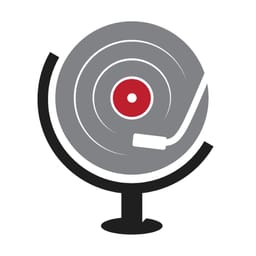 The TonearmLawrence Peryer
The TonearmLawrence Peryer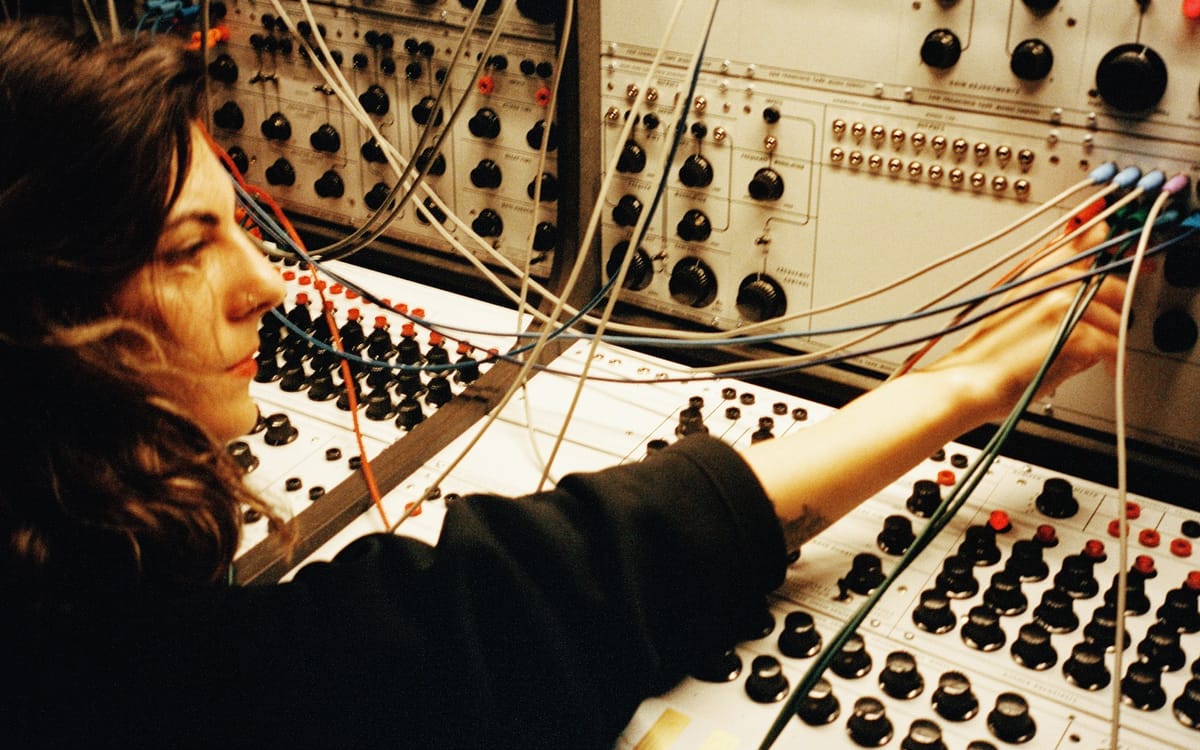
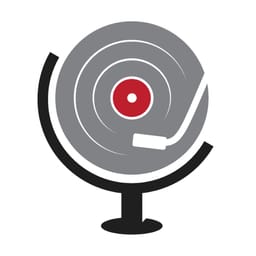 The TonearmLawrence Peryer
The TonearmLawrence Peryer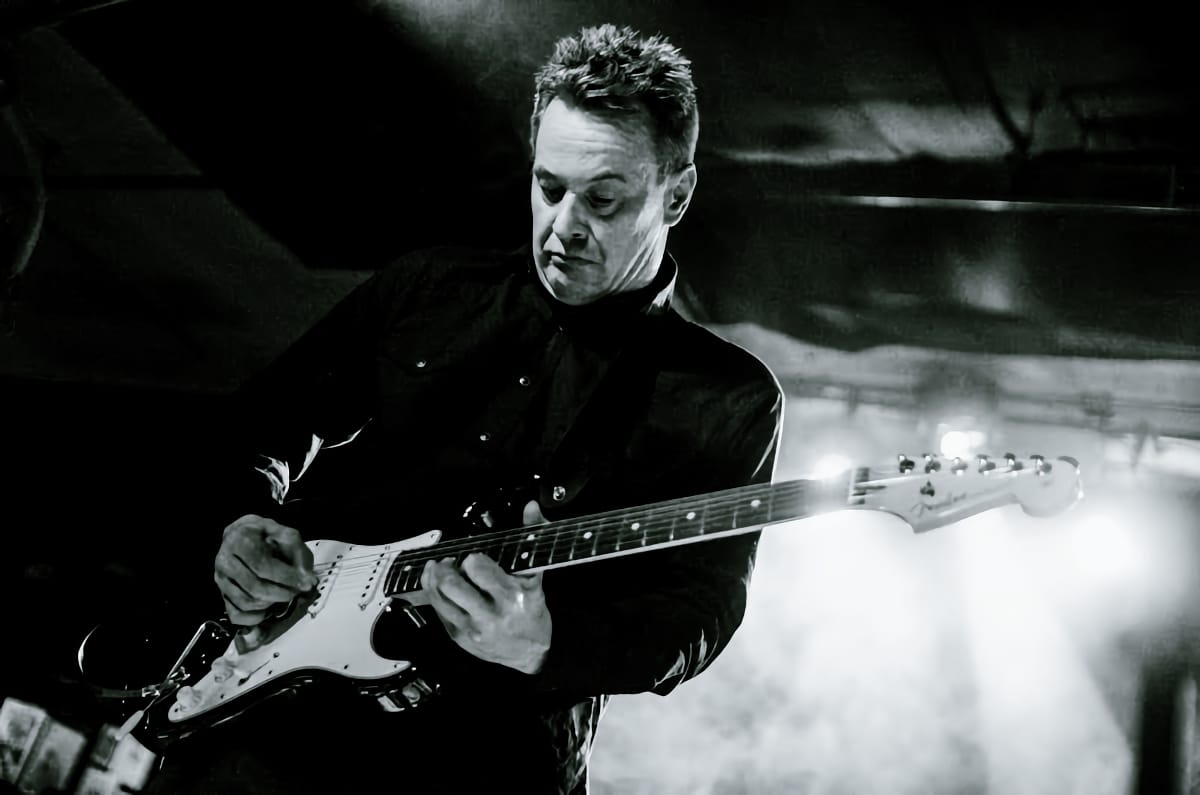



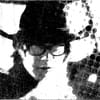
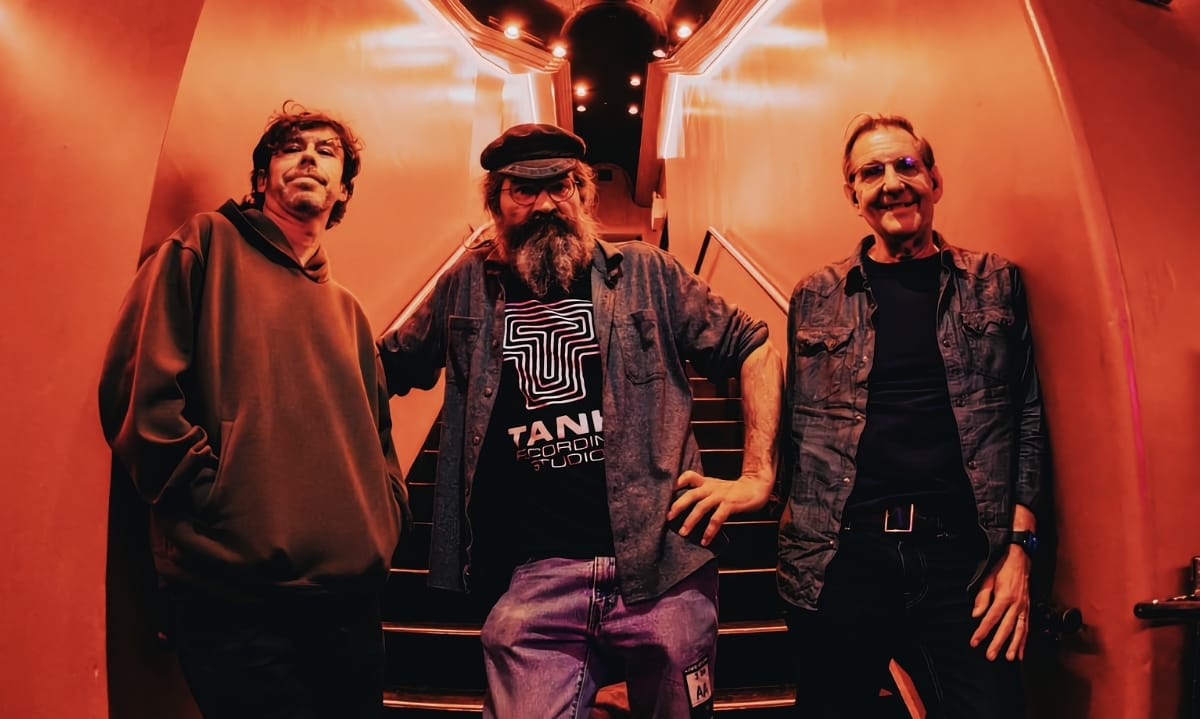

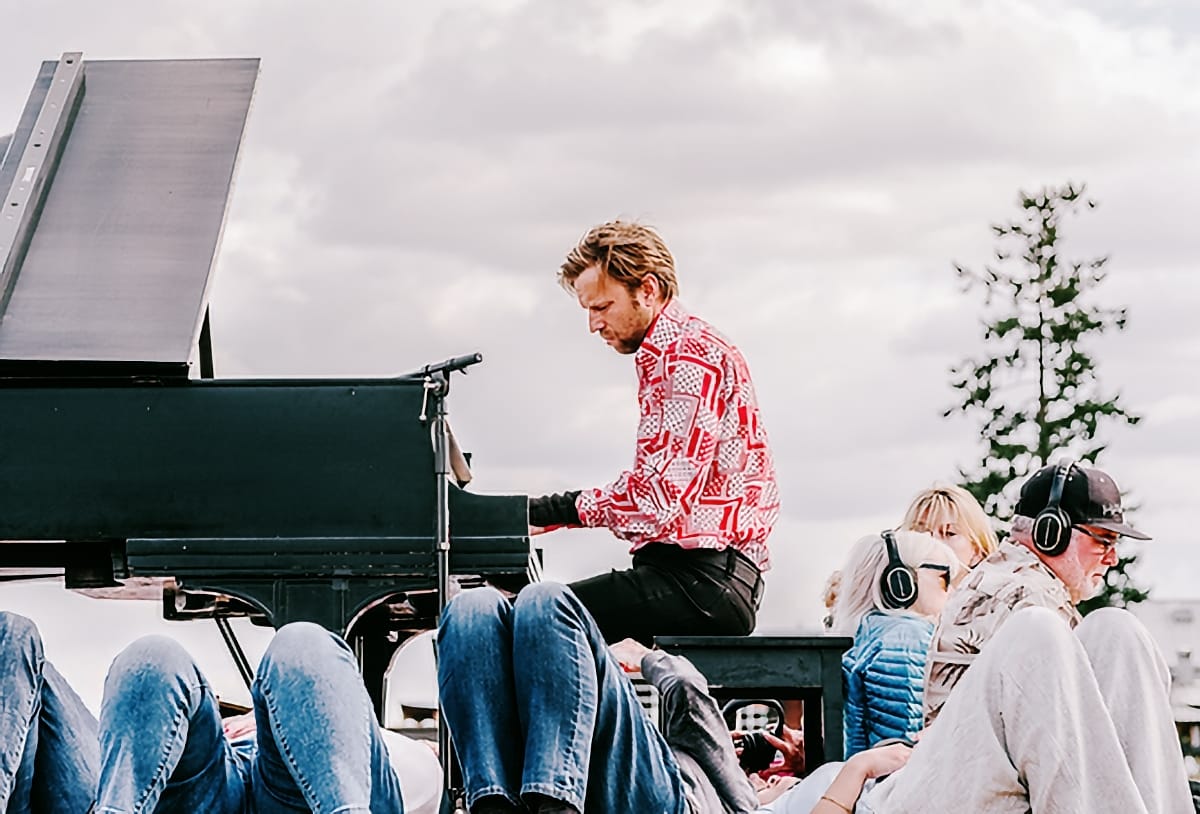
Comments